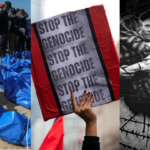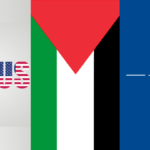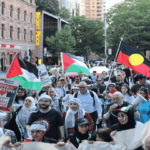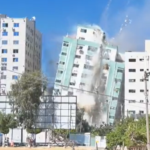Israel is an Illegal Occupier Operating Apartheid in the Palestinian Territories, Advises the ICJ
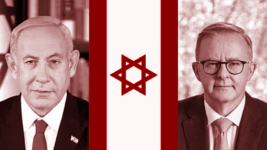
The International Court of Justice published its findings last Friday in response to the UN General Assembly’s resolution A/77/400 adopted on 30 December 2022, which sought answers regarding the legal consequences arising from Israel’s occupation of Palestinian Territory, including East Jerusalem.
And this request for an advisory opinion was put to the World Court 10 months prior to the onset of the now 10-month-long wholesale massacre in Gaza that the ICJ has ruled a plausible genocide that’s seen at least 39,000 people killed, which rises to about 49,000, when including those under rubble.
And in terms of a recent Lancet report, a conservative estimate based on passed conflicts puts the direct and indirect death toll now at around 186,000 Palestinians and rising.
So, in regard to the UN questioning, the ICJ has found Israel’s presence in the occupied Palestinian territories is unlawful, Israel “is under obligation” to remove its illegal presence “as rapidly as possible”, and this includes ceasing the establishment of settlements and the removal of all settlers.
The Israeli state, the ICJ considers, and has advised the UN, has an obligation “to make reparation for the damage caused to all the natural or legal persons concerned” in the Occupied Palestinian Territories.
And while not distinctly spelt out in its press release, within the ICJ’s 83 page advisory opinion it asserts that Israel’s discriminatory legislation and policies impose a severe form of racial segregation and apartheid upon Palestinians in the occupied territories.
The ICJ observed that this apartheid policy in the West Bank and East Jerusalem, is first and foremost a physical separation. And Israel’s settlements further fragment Palestinian populations, and this has developed to the point of a residence permit system and separate roads for Israelis and Palestinians.
Pre-Gaza genocide put questions
The UN Special Political and Decolonisation Committee produced resolution A/77/400 in November 2022, after considering evidence from UN secretaries general on Israeli settlements in occupied Palestine and Syrian Golan, as well as Israeli policies affecting Palestinians and other Arab peoples.
On adoption of the resolution, the UN General Assembly put two questions to the ICJ, under article 65 of the Statute of the International Court of Justice, which requests it provide opinion on any legal question made in accordance with the Charter of the United Nations.
The first question put was what are the legal consequences of “the ongoing violation by Israel of the right of the Palestinian people to self-determination, from its prolonged occupation, settlement and annexation of the Palestinian territory occupied since 1967?”
And this initial query ventured further to seek the consequences of the state of Israel having adopted discriminatory legislation and policies, which included specifically the measures that have been aimed at “having altered the demographic composition, character and status” of Jerusalem.
While the second request for advice related to how these Israeli policies and practices that were queried in the first question have affected the “legal status of the occupation”, and what sort of legal consequences arise for all other states and the United Nations due to the nature of the occupation.
Complicity in the illegal occupation
The ICJ further asserts that all UN state parties are under obligation to recognise that Israel’s presence in the Palestinian territories is an illegal occupation and not to render aid or assistance to Tel Aviv in order for it to be able to maintain its continued illegal occupying of Palestinian land.
The obligation extends to the military aid and assistance provided by the US, which has funded the Israeli state in perpetrating a 10-month-long genocide upon the Palestinians of Gaza, as well as extending to the ongoing trade in essential arms parts produced in Australia and utilised in Gaza.
The Albanese government being one of the first nations to follow the US in cutting off aid funding to UNRWA, then the main aid channel into the genocide site of Gaza, would likely also be considered a breach of this advice, as it was assisting Israel in maintaining its illegal occupation of the Strip.
The ICJ advice also holds international organisations, such as the UN, as being obligated to recognise that the state of Israel’s occupation of the Palestinian territories is illegal, and it underscores that the UN General Assembly, in having requested this opinion, is now especially obliged to follow through.
“The General Assembly… and the Security Council, should consider the precise modalities and further action required to bring to an end as rapidly as possible” to the illegal “presence of the state of Israel in the Occupied Palestinian Territory,” the advice clearly states as its last recommendation.
A pariah state is falling down
Israel has occupied the Palestinian territories for 57 years now, and as an occupying force, Israel has assumed powers and duties over these territories based on the premise that the occupation is only a temporary situation out of a response to military circumstances, the ICJ further explained.
The World Court further underscored that prolonged occupation does not result in the “transfer title of sovereignty to the occupying power”.
The ICJ also reaffirmed its 2004 finding that “the Israeli settlements in the West Bank and East Jerusalem, and the regime associated with them, have been established and are being maintained in violation of international law”, and it added that its now concerned the occupation is only expanding.
This advice being released at a point in time when the worst atrocity crime since the Holocaust is being perpetrated by the Israeli state upon the 2.3 million Palestinians of Gaza, is just one more condemnatory finding against Israel that has reached pariah state status over the last year.
The International Court of Justice released its interim ruling on a genocide case against Israel brought by South Africa, which, handed down on 26 January, found that Israel is plausibly committing genocide in Gaza, and it ordered it to halt all acts genocidal in nature, which Tel Aviv has ignored.
This ruling also called upon Israel to resume aid into the area, which resulted in around a dozen more nations, including Australia, cutting off aid funding to UNRWA, based on unsubstantiated claims that the aid agency was complicit in crimes against Israel.
Further developments have led the International Criminal Court to apply for arrest warrants against Israeli PM Benjamin Netanyahu and defence minister Yoav Gallant for war crimes against Palestinians. And it’s been announced, the warrants could be forthcoming this week.
And as for Australia, it came to light last week that a claim charging PM Anthony Albanese and other key ministers with complicity in the Gaza genocide has been accepted as evidence in the ICC State of Palestine inquiry, which is the case that led to the application for a Netanyahu arrest warrant.


